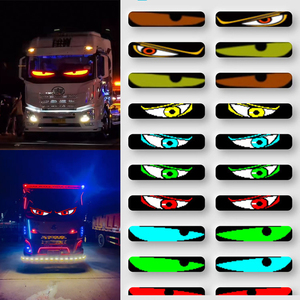Introduction to Car Panel Signals
Car panel signals are essential components used in vehicles to convey crucial information to the driver. These signals typically illuminate various indicators regarding the operational status of the vehicle, allowing for optimal safety and performance on the road. Whether they inform drivers about speed limits, fuel levels, or warning alerts for mechanical issues, understanding car panel signals is fundamental for any vehicle owner. In this guide, we will explore several key aspects of car panel signals, including their types, functions, applications, and advantages.
Types of Car Panel Signals
Car panel signals come in a variety of forms, each serving distinct purposes:
- Warning Lights: These lights alert drivers to potential problems, such as engine malfunctions or low oil levels.
- Indicator Lights: Commonly used for turn signals and high beam indicators, they help in safe driving by notifying other road users of the driver's intentions.
- Dashboard Gauges: These include speedometers, fuel gauges, and temperature readings, all integral to monitoring the vehicle’s performance.
- Emergency Warning Signals: These indicators can signify a breakdown or possible hazard, ensuring that drivers take immediate action.
Function and Feature of Car Panel Signals
The primary function of car panel signals is to provide real-time information about the vehicle's status to enhance safety and driveability:
- Real-time Feedback: Car panel signals offer immediate feedback on various operational aspects of the vehicle, allowing drivers to make informed decisions.
- Alerting Mechanisms: Warning signals provide critical alerts for maintenance needs or potential vehicle failures, helping prevent accidents or breakdowns.
- Efficiency Indicators: Fuel and temperature gauges help in maintaining optimal driving conditions, leading to improved fuel efficiency.
- Safety Enhancement: With clear indicators for turn signals, high beams, and hazard lights, car panel signals promote safe driving behavior both for the driver and other road users.
Applications of Car Panel Signals
Car panel signals are utilized in various applications within the automotive industry, serving both commercial and personal vehicles:
- Passenger Vehicles: Commonly seen in everyday cars, these signals aid in regular driving, improving the safety and comfort of passengers.
- Commercial Fleets: Used in transport vehicles where real-time monitoring is crucial for maintenance and operations, reducing downtime.
- Electric Vehicles: Car panel signals in EVs often include unique features, indicating battery status and charging capabilities.
- Motorcycles and Two-Wheelers: Essential for alerting other drivers on busy roads, focusing on compact indicator signals for space efficiency.
Advantages of Car Panel Signals
The integration of effective car panel signals presents several advantages for drivers and passengers alike:
- Improved Safety: By providing critical information promptly, car panel signals reduce the risk of accidents caused by driver unawareness.
- Ease of Operation: Clearly displayed information allows drivers to focus on driving, promoting a safer driving environment.
- Maintenance Awareness: Regular alerts and reminders regarding vehicle status help in timely servicing, which prolongs vehicle life.
- Enhanced User Experience: With intuitive designs, car panel signals make driving more enjoyable and less stressful, contributing to overall driver satisfaction.








 Ready to Ship
Ready to Ship







































